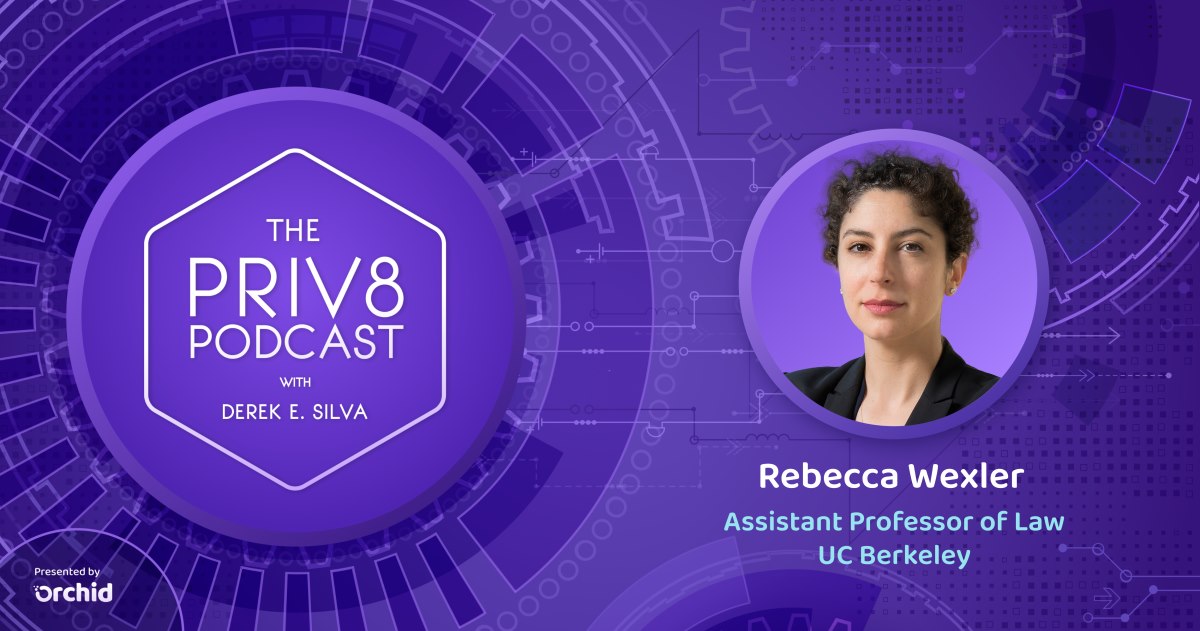
Rebecca Wexler on Leveraging Tech to Create Better Criminal Justice Systems
Jun 7, 2021
"Who gets access to information? Who gets to withhold it, and why, and how?"
These questions are at the center of the work of Rebecca Wexler, an assistant professor of law at the University of California Berkeley, where she teaches, researches, and writes on issues that concern criminal justice, data, and technology. Specifically, Rebecca examines the abilities of criminal defendants and their legal council to "gain access to the information that they need to represent themselves in court."
"[Imagine that] you're accused of a crime," Rebecca said, speaking to Priv8 Podcast host Derek Silva. "What is the relevant evidence to show that you have been wrongfully accused--that somebody else committed the crime, and not you? ... What do the defense council need to do to get the information that they need to prove a case?"
This is why an important part of Rebecca's work focuses on the withholding of information: "What kind of information can the government--or private companies, or individual people--withhold from someone who's in that position, who's facing the loss of their life or their liberty?"
How do technology and democracy work together on a national scale?
"There are these questions about the role of technology in our democracy that are being debated on a national scale--in a national security context, as well as by the federal government in terms of data transfer agreements. However, there are similar issues that come up in our regular, everyday criminal cases."

"So, we've got this moment where we're struggling as a society to figure out how technology and democracy work together on a national scale--and then we're also dealing with a crisis of our criminal justice system: mass incarceration, a lack of police accountability and oversight, [and more]," she said.
How should criminal legal systems function to support the truth?
By bringing these two conversations--around the role of technology and the shape of criminal justice in our society--together, Rebecca hopes to answer a hard question: "the legitimacy of our criminal legal system."
"The US relies on an adversarial system to seek truth in criminal investigations and prosecutions. There's a fight between law enforcement and prosecutors on one hand, and the defense council on the other."
But the implementation and usage of this system "is not inevitable," Rebecca said. For example, "there are other countries that have what's called an 'inquisitorial system,' where the law enforcement [professionals] investigate facts from a neutral perspective, meaning that they have a duty to investigate both guilt and innocence."
In the US, by contrast, law enforcement and prosecutors are exclusively responsible for investigating evidence of guilt, while the defense council investigates innocence. "This means that if we build data-driven, machine learning, and AI technologies to the prime market player--in this case, law enforcement--we're building a system where there's centralized cooperation between law enforcement and all of its resources, and a dispersed, overworked defense bar."
Listen to Derek's full conversation with Rebecca, And don't forget to subscribe to the Priv8 podcast on your favorite streaming service.
If you enjoyed this blog, subscribe here for privacy news, commentary, and product updates from Orchid.



